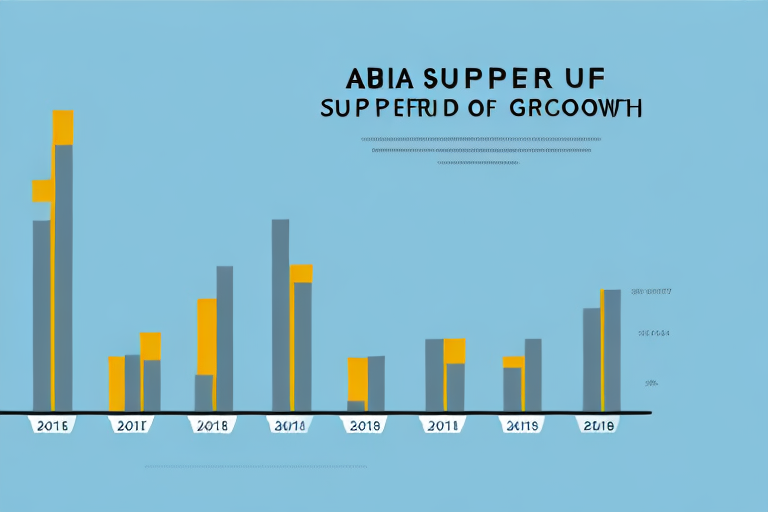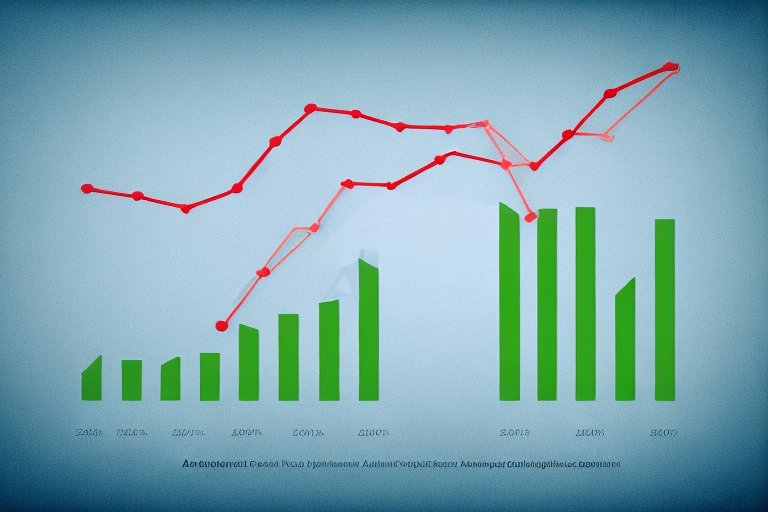SMSF Management: Enhancing the Value of Your Super Fund

In today’s fast-paced world, it is crucial to plan for your retirement. One avenue that provides individuals with more control over their retirement savings is a Self-Managed Super Fund (SMSF). By understanding the basics of SMSF and adopting effective management strategies, you can enhance the value of your super fund and secure your financial future. In this article, we will explore the various aspects of SMSF management and provide insights into how to make the most of your retirement savings.
Understanding the Basics of SMSF
When it comes to planning for retirement, there are various options available to individuals by Number Super. One such option is a Self-Managed Super Fund (SMSF). But what exactly is an SMSF?
What is a Self-Managed Super Fund (SMSF)?
A Self-Managed Super Fund (SMSF) is a private superannuation fund that gives you control over how your retirement savings are invested. Unlike traditional superannuation funds, where decisions are made by fund managers, an SMSF allows you to make investment choices based on your individual preferences and risk appetite.
With an SMSF, you become the trustee of the fund and are responsible for managing and investing the assets within the fund. This means that you have the power to decide where your money is invested, whether it’s in property, shares, cash, or other investment options.
Having this level of control over your retirement savings can be appealing to many individuals who want to have a hands-on approach to their investments and want to tailor their strategy to their specific needs and goals.

The Importance of SMSF in Retirement Planning
Retirement planning is a crucial aspect of financial management. It’s important to ensure that you have enough savings to support yourself and maintain your desired lifestyle once you stop working. This is where an SMSF can play a significant role.
By establishing an SMSF, you gain the flexibility to customize your investment strategy according to your retirement goals. This control ensures that your fund is aligned with your unique needs and preferences, maximizing your chances of achieving a secure financial future.
One of the key benefits of an SMSF is the ability to invest in a wide range of assets. While traditional superannuation funds may limit your investment options, an SMSF allows you to diversify your portfolio and explore different investment avenues. This can potentially lead to higher returns and greater wealth accumulation over time.
Furthermore, an SMSF can provide you with the opportunity to take advantage of tax benefits. By strategically managing your investments and making use of tax concessions available to SMSFs, you can potentially reduce your tax liabilities and maximize your retirement savings.
However, it’s important to note that managing an SMSF comes with responsibilities and obligations. As a trustee, you must comply with the rules and regulations set by the Australian Taxation Office (ATO) and ensure that your fund operates within the legal framework.
Seeking professional advice from qualified SMSF specialists is highly recommended to ensure that you fully understand the complexities involved and make informed decisions that align with your retirement goals.
The Role of Effective SMSF Management
Self-Managed Superannuation Funds (SMSFs) have become increasingly popular in recent years, offering individuals more control and flexibility over their retirement savings. However, with this control comes great responsibility. As an SMSF trustee, it is imperative to understand your responsibilities and ensure effective management of your fund.
Responsibilities of an SMSF Trustee
As an SMSF trustee, you have a fiduciary duty to act in the best interests of the fund’s members. This includes complying with superannuation laws and managing the fund for the sole purpose of providing retirement benefits. It is essential to formulate an investment strategy that aligns with the fund’s objectives and risk tolerance.
Furthermore, accurate record-keeping is crucial to ensure transparency and accountability. You must maintain detailed records of all transactions, including contributions, investments, and expenses. This not only helps in managing the fund effectively but also facilitates the reporting process to the Australian Taxation Office (ATO).
Reporting to the ATO is a vital aspect of SMSF management. Trustees are required to lodge an annual return, which includes financial statements, member contributions, and other relevant information. It is crucial to meet the reporting deadlines and provide accurate and complete information to the ATO.
The Importance of Regular SMSF Audits
Regular audits are an essential part of SMSF management. These audits provide an independent assessment of the fund’s compliance with superannuation laws and ensure that the financial statements present a true and fair view of the fund’s financial position.
Engaging a professional SMSF auditor can bring numerous benefits to your fund. They have the expertise to identify any potential compliance issues and provide recommendations for mitigating risks. A thorough audit can help you identify areas where improvements can be made, ensuring the fund operates efficiently and effectively.
Moreover, regular audits contribute to the integrity and transparency of your SMSF. They provide assurance to the fund’s members and other stakeholders that the fund is being managed in accordance with the law and best practices. This can enhance trust and confidence in the fund, attracting potential new members and investors.
By conducting regular audits, you can also stay ahead of any potential problems or breaches. Early detection of issues allows you to take corrective measures promptly, minimizing any adverse impact on the fund and its members.
In conclusion, effective SMSF management is crucial for trustees to fulfill their responsibilities and provide retirement benefits to members. By understanding and adhering to superannuation laws, maintaining accurate records, and engaging in regular audits, trustees can ensure the integrity and transparency of their SMSF. This, in turn, can lead to better outcomes for members and a more secure retirement future.
Strategies to Enhance the Value of Your SMSF
Managing a Self-Managed Superannuation Fund (SMSF) requires careful consideration and strategic decision-making. To ensure the long-term success and growth of your SMSF, it is crucial to implement strategies that enhance its value. In this article, we will explore two key strategies that can help you achieve this goal.
Diversification of Investments
Diversification is a fundamental principle of investment management. It involves spreading your SMSF investments across different asset classes, sectors, and geographic regions. By diversifying your portfolio, you can reduce the impact of market volatility and potentially maximize returns.
When you diversify your SMSF investments, you are essentially minimizing the risk associated with any single investment. For example, if you solely invest in one industry or geographic region, your portfolio becomes vulnerable to the specific risks and fluctuations of that sector. However, by spreading your investments across various industries and regions, you can mitigate these risks and capture potential growth opportunities.
Furthermore, diversification allows you to align your SMSF investments with your risk tolerance and investment objectives. By carefully selecting a mix of asset classes, such as stocks, bonds, real estate, and commodities, you can create a balanced portfolio that suits your individual preferences and financial goals.

Regular Review and Rebalancing of Portfolio
The investment landscape is dynamic and ever-changing. To ensure the continued success of your SMSF, it is essential to regularly review and rebalance your portfolio. Conducting periodic reviews allows you to assess the performance of your investments, evaluate market conditions, and adjust your investment strategy accordingly.
During a review, you can analyze the performance of each asset class in your portfolio and determine whether any adjustments are necessary. For example, if a particular sector is underperforming, you may consider reducing your exposure to that industry and reallocating your funds to sectors with better growth prospects.
Rebalancing your portfolio involves adjusting the allocation of your assets to maintain your desired risk profile. Over time, certain investments may outperform or underperform, causing your asset allocation to deviate from your original plan. By rebalancing, you can realign your portfolio with your risk tolerance and investment objectives, ensuring that it remains in line with your long-term goals.
Regular review and rebalancing of your SMSF portfolio not only helps you stay on track with your investment strategy but also allows you to take advantage of new opportunities that arise in the market. By staying informed and proactive, you can make informed decisions that enhance the value of your SMSF.
The Impact of Legislation on SMSF
Superannuation laws govern the operation of Self-Managed Superannuation Funds (SMSFs) and play a vital role in shaping the landscape of retirement savings in Australia. These laws are designed to ensure the proper management and protection of SMSF assets, as well as safeguard the interests of SMSF members.
Understanding the intricacies of superannuation legislation is crucial for SMSF trustees and members. It is essential to stay updated with the latest legislative changes to ensure compliance and avoid any potential penalties or legal issues. By familiarizing yourself with the laws, you can effectively navigate the complexities of managing an SMSF.
Understanding the Superannuation Laws
The superannuation laws encompass a wide range of regulations and guidelines that govern various aspects of SMSFs. These laws dictate the permissible actions and limitations, covering areas such as investment strategies, contribution limits, benefit payments, and reporting requirements.
Compliance with these laws is essential to maintain the concessional tax treatment that SMSFs enjoy. Failing to comply with the legislation can result in severe consequences, including the loss of tax advantages, financial penalties, or even the disqualification of the SMSF.
Staying updated with the latest legislative changes is a continuous process. The Australian Taxation Office (ATO) regularly releases updates and guidance materials to assist SMSF trustees in understanding and complying with the laws. It is advisable to regularly review these updates and seek professional advice when needed to ensure your SMSF remains compliant.
How Regulatory Changes Can Affect Your SMSF
The regulatory landscape surrounding SMSFs is dynamic and subject to frequent changes. Regulatory bodies such as the ATO and the Australian Securities and Investments Commission (ASIC) continuously monitor the superannuation sector and introduce new rules and regulations to enhance the integrity and efficiency of SMSFs.
These regulatory changes can significantly impact the performance and management of SMSFs. For example, changes in contribution limits may affect the ability of members to make additional contributions to their SMSFs. Similarly, alterations to investment rules may require a review of the fund’s investment strategy.

Keeping abreast of regulatory changes allows you to evaluate and adapt your SMSF strategy accordingly. By understanding the implications of these changes, you can navigate potential challenges and capitalize on new opportunities to enhance the value of your SMSF. It is essential to regularly review your SMSF’s compliance with the latest regulations and seek professional advice to ensure your fund remains in line with the changing legislative landscape.
Moreover, staying informed about regulatory changes enables SMSF trustees to make informed decisions about their retirement savings. By understanding the impact of new rules and regulations, trustees can assess the potential risks and benefits associated with different SMSF strategies.
Additionally, regulatory changes may also present opportunities for SMSF members to optimize their retirement savings. For example, new contribution rules may allow members to take advantage of additional tax benefits or explore alternative investment options that align with the updated regulations.
In conclusion, understanding the impact of legislation on SMSFs is crucial for trustees and members to effectively manage their retirement savings. Staying updated with the latest superannuation laws and regulatory changes enables SMSF trustees to navigate potential challenges, capitalize on new opportunities, and ultimately enhance the value of their SMSF.
Seeking Professional Help for SMSF Management
The Role of Financial Advisors in SMSF Management
Managing an SMSF involves complex financial matters and legal obligations. Seeking professional help from experienced financial advisors can provide invaluable guidance and support. Financial advisors can help you develop a robust investment strategy, ensure compliance with superannuation laws, and navigate the intricacies of SMSF management.
Benefits of Hiring a Professional SMSF Auditor
Engaging a professional SMSF auditor ensures that your fund’s financial statements are audited in line with regulatory requirements. A qualified auditor brings an objective perspective and expertise to identify any potential compliance issues, assess internal controls, and ensure the accuracy of financial reports. Hiring a professional SMSF auditor helps instill trust in fund members and demonstrates your commitment to sound and ethical management practices.
In conclusion, SMSF management plays a significant role in maximizing the value of your super fund. By understanding the basics of SMSF, adopting effective management strategies, and staying updated with legislation, you can secure your financial future. Seeking professional help from financial advisors and auditors can further enhance your SMSF management practices. With the right approach, you can take control of your retirement savings and create a solid foundation for a prosperous retirement.





